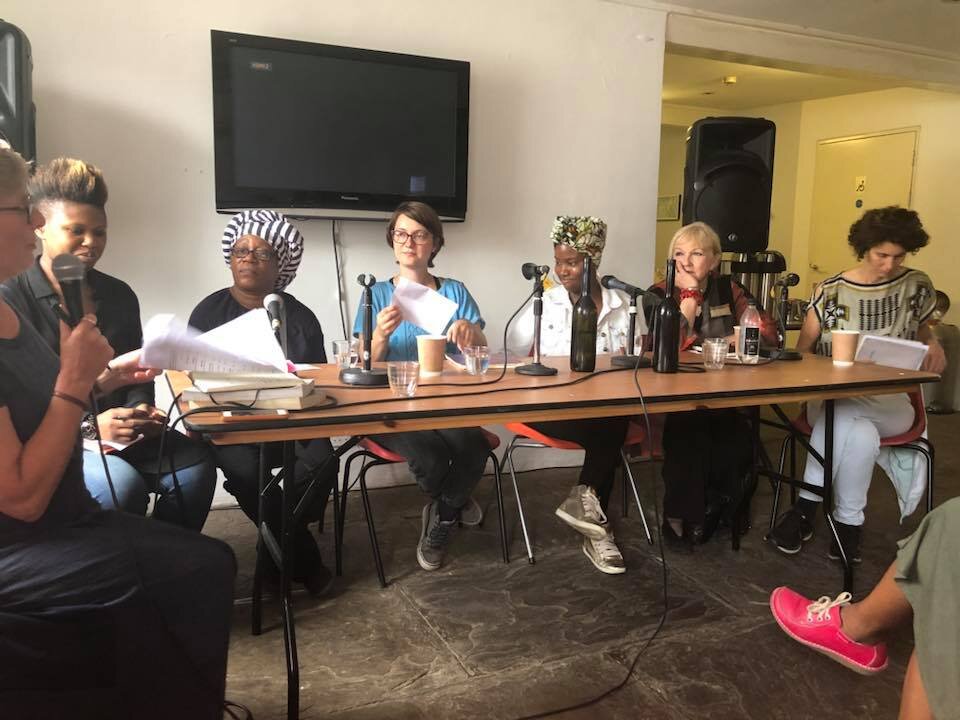Symposium: In Whose Eyes?
Beaconsfield Gallery Vauxhall
29th July 2018
Speakers: Griselda Pollock (keynote), Sonia Boyce, Enam Gbewonyo, Rose Gibbs, Catherine Long, Ope Lori.
Currently, we are in the midst of a resurgence of feminism in the west and globally, which continues to gather momentum. The last five years has seen a significant increase in feminist conferences, grassroots activism and feminist art-making and exhibitions. Much of this organising takes place in the face of the continued discrimination and the realisation among younger women that we have been sold a fabrication: that equality has been achieved thereby making feminism redundant. At the same time, capitalism has co-opted the language of feminism in the mainstream media and the backlash against feminism has taken on its most virulent form: behaviours and products that are all part of the capitalist arsenal are recast as feminist tools of ‘empowerment’ while the derivation of that power remains strikingly unexamined.
The struggle around visual representation is one that feminist artists have always been engaged with and which Griselda Pollock and Rozsika Parker highlighted in Framing Feminism: Art and the Women’s Movement 1970 – 1985 (1987). Visual representation is crucial if feminism is to achieve its political agenda of radically intervening in the status quo of patriarchal cultural hegemony in order to upend ruling structures of power and domination. Feminist art practice interjects a multiplicity of subjectivities, perspectives and voices into the cultural sphere in modes that can disrupt the ongoing narrative issuing from the prevalent patriarchal western imagination. For artists, the vexed question remains: how can feminist art intervene in dominant culture when the conditions of female representation are so overly determined by the constraints of objectification and sexualisation?
With a focus on the constructed nature of identity, this symposium will think through the act of looking and investigate ideas around subjectivity, representation and power - ideas that are explored throughout the exhibition. Underlying these investigations will be the question: how can feminist artwork resist recuperation and avoid the pitfalls of dominant heteronormative culture? The symposium will consider the place of visual art as means by which to unsettle patriarchal structures, foregrounding the importance of feminism as a lived practice and as such focusing on feminist art practice as an ongoing work-in-progress that calls for continual self-reflection and critical analysis. Speakers will think through the two way process of looking, the feedback loops that shape our behaviours, as well as the role that re-presentation has to play in countering dominant narratives.
We will end with a panel discussion comprising of artists, academics and curators concerning the ways in which formal strategies employed by feminist artists can operate to undermine the status quo of hegemonic gender representations and propose new potentialities of female subjectivities. Furthermore, the panel will discuss the role of art institutions in shaping the cultural landscape and their unique position to provide a much-needed platform to address inequalities of representation.
Convened by Rose Gibbs and Catherine Long in collaboration with Beaconsfield Gallery Vauxhall and Practice in Dialogue.
Supported by Arts Council England and Camberwell, Chelsea, Wimbledon Graduate School, University of the Arts London.
